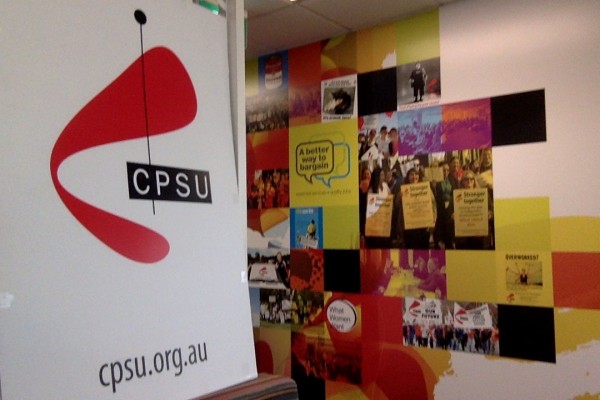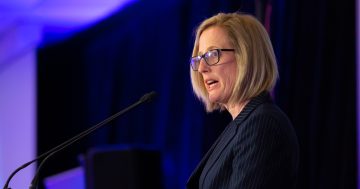
A CPSU election for the union’s executive positions is being contested. Photo: File.
The standoff between the Federal Government and the Community and Public Sector Union over APS wages has myriad interesting facets, not the least being over what is actually going on inside the CPSU.
The union’s tough stance against the government’s first wages increase offer of 10.5 per cent over three years softened with a renewed offer of 11.2 per cent over the same period – only to toughen up again to the point of rolling industrial action across a growing portion of the APS.
While the union initially appeared to be priming its membership to say yes to the revised offer (which a slim majority did), it suddenly dug its heels in to demand an even higher pay increase.
Here’s why … The CPSU has more than 40,000 members across the country, with a big chunk working in the Australian Public Service and based in the ACT.
It’s about to have an election for executive positions and it’s the first time in almost two decades that a full election has occurred because usually paid officials who are all members of the Australian Labor Party pretty much always get elected unopposed.
But there is unrest in the camp.
An increasingly visible cohort inside the CPSU believes the union’s executive is far too closely aligned to the ALP.
Calling themselves Members United, they believe the CPSU leadership has not gone hard enough against the government in its wage bargaining.
They think the government is taking for granted that the CPSU won’t go too hard against them because, ‘well, you know, we’re all in the same family’.
Members United believe the CPSU’s affiliation hasn’t helped the wages cause at all. Quite the contrary, in fact – they think, at best, it’s useless; at worst, it has worked against them. So Members United people are now campaigning to win CPSU national executive positions. Ballots for the CPSU election open tomorrow (1 November).
Members United want the top union spots and they are promising serious changes should they get them.
They are running on a platform of increased democracy for the CPSU and one that isn’t tied to the ALP.
Some Members United candidates work for MPs in Labor and Greens offices, but they are still promising a full membership plebiscite next year on whether the CPSU should remain affiliated with the ALP.
The CPSU’s executive has never allowed that kind of vote to take place before.
Members United has already written an open letter to CPSU national secretary Melissa Donnelly asking her to resign her place on the ALP National Executive.
No reply yet.
The CPSU and the ALP have been quite dismissive of Members United, to the point of not publicly acknowledging them at all.
But the threat posed by this grassroots campaign has very much been acknowledged.
That’s evident in how union bosses about-faced over the 11.2 per cent offer when they were about to roll over and accept it.
They are fearful for their positions and for what it might mean for the whole movement if Members United people get CPSU executive posts.
So they got outwardly tougher towards the government as Members United activists insisted the union should.
Members United’s approach in workplace bargaining would have been to run as many protected action ballots as possible much earlier to let the government know from the outset that public servants deserve a better pay deal.
The Federal Government isn’t happy with the current turn of events. It was expecting the CPSU to get on board.
It doesn’t want the wages fight to keep festering while it is talking itself up as an employer of choice.
And unions shouldn’t be attacking a Labor government, should they?
A membership ballot to end CPSU affiliation with the ALP even has implications for voting blocs in preselections for federal Labor candidates.
But as Members United campaigners are repeatedly making clear, affiliation with a Labor government doesn’t necessarily mean the best outcome for union members wanting more money.
The CPSU election is not far away at all, but there remains much to play out.
It’s a David versus Goliath fight, but the Members United team aren’t backing down.



















